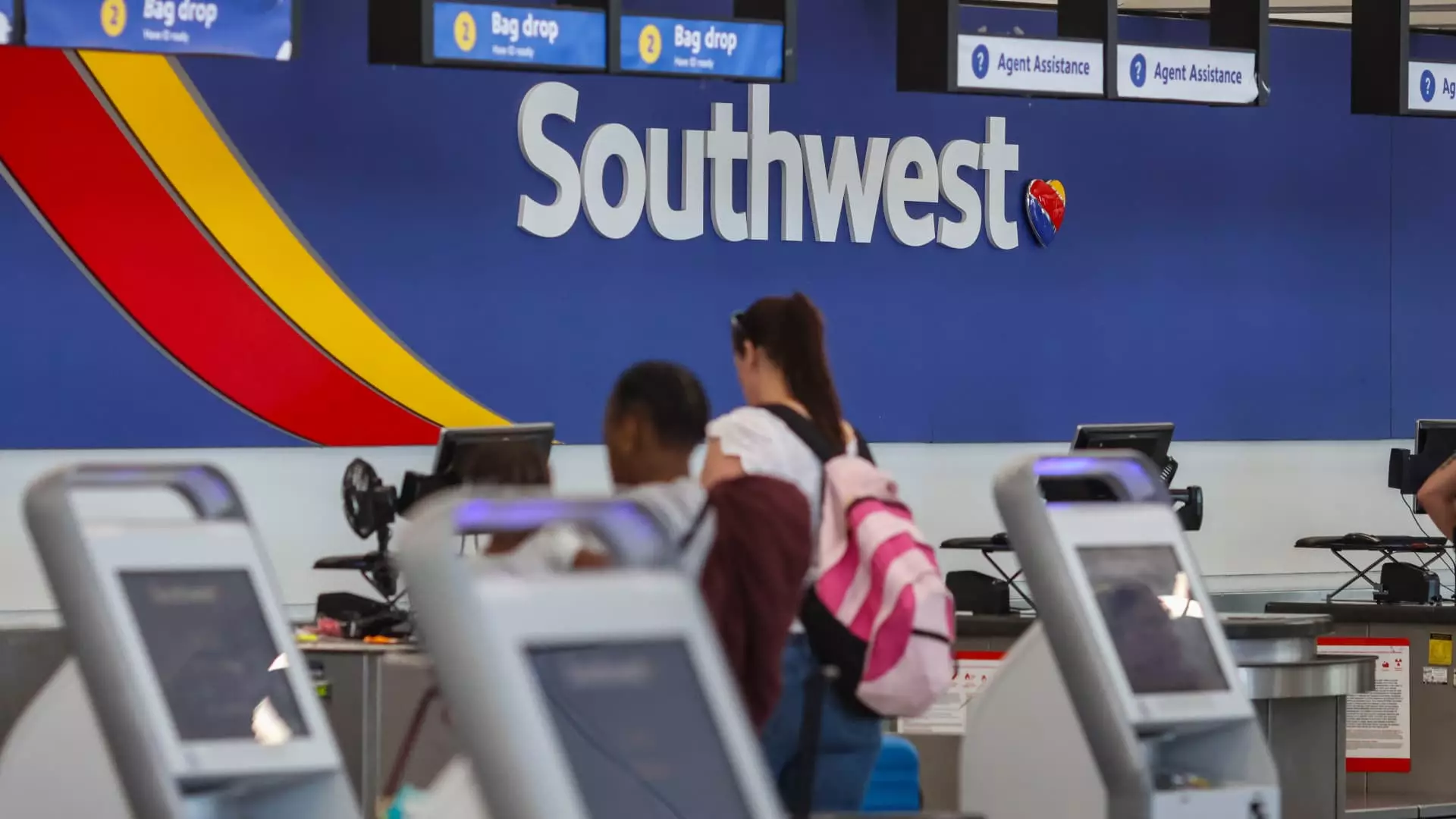In a move that underscores the evolving dynamics of the airline industry, Southwest Airlines has revealed plans to scale back its operations in Atlanta, a critical hub for air travel. The announcement includes a significant cut in staffing—over 300 positions for pilots and flight attendants—in an effort to streamline its services while addressing ongoing financial pressures. This operational shift, detailed in an internal memo obtained by CNBC, comes just ahead of Southwest’s investor day and signals a concerted effort to improve profitability amidst mounting scrutiny from investors, particularly activist group Elliott Investment Management.
The strategic decision to reduce staff by approximately 200 flight attendants and 140 pilots does not entail an outright closure of the crew base in Atlanta. Instead, current employees will face a reallocation, likely needing to bid for positions in other cities. This approach reflects a nuanced strategy, one that seeks not only to cut costs but also to maintain operational flexibility within the workforce. While employees may experience upheaval, it is crucial to note that Southwest has emphasized its appreciation for their performance amidst the challenges of running operations in a competitive hub dominated by Delta Air Lines.
The reduction in operational capacity is notable, with Southwest decreasing its Atlanta gates from 18 to 11, which is indicative of broader market trends pressuring the airline’s profitability. The plan also entails a reduction in the number of cities served from Atlanta, dropping to 21 from 37—a stark reflection of shifting booking patterns and market demand.
Despite the cutback in Atlanta, Southwest isn’t stepping back across the board. The airline is leveraging this moment of transition to expand services from Nashville, Tennessee, and introduce overnight flights from various Hawaiian destinations to Las Vegas and Phoenix. This dual approach illustrates a keen awareness of shifting passenger traffic and emphasizes the need to adapt services to meet evolving customer demand effectively.
Southwest’s commitment to optimizing its network operations reveals a concerted effort to better align fleet usage with profitability metrics. The spokesman for the airline confirmed this ongoing endeavor, reassuring stakeholders that despite the changes in Atlanta, the larger vision for the airline includes enhancing revenue opportunities while catering to customer preferences.
The context for these alterations is critical. Southwest, like many airlines, is grappling with a mixture of oversupply in certain markets and the effects of delayed aircraft deployments from Boeing. The Boeing 737 Max 7 continues to lag behind schedule, exacerbating operational limitations that can hamper a carrier’s ability to grow its fleet and expand service.
In the backdrop of these challenges, Southwest’s COO, Andrew Watterson, has candidly addressed the need for “difficult decisions” to boost profitability. This acknowledgment of the turbulent landscape facing airlines reflects a broader trend within the industry, where carriers face the dual challenge of rising operational costs and fluctuating consumer behavior in the post-pandemic sphere.
Ultimately, Southwest Airlines’ decision to reduce its service in Atlanta serves as a microcosm of the broader challenges faced by the airline sector today. The balance between cost-cutting and service expansion encapsulates the complexity of navigating an industry in flux. While the immediate implications of staffing reductions and service overhauls may raise concerns, Southwest appears at least determined to sustain its operational integrity and financial health in a challenging environment.
As the airline adapts to stay viable amid heightened competition, it is crucial for stakeholders—including employees, customers, and investors—to remain aware that these strategic pivots, while uncomfortable, are often necessary for long-term resilience and success in the aviation market. The road ahead for Southwest may be fraught with challenges, but its commitment to evolving its operations illustrates a proactive approach to sustainability in an unpredictable landscape.

